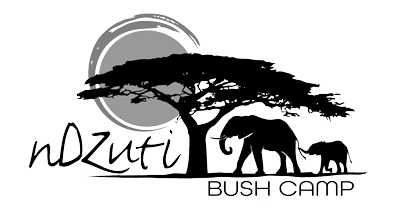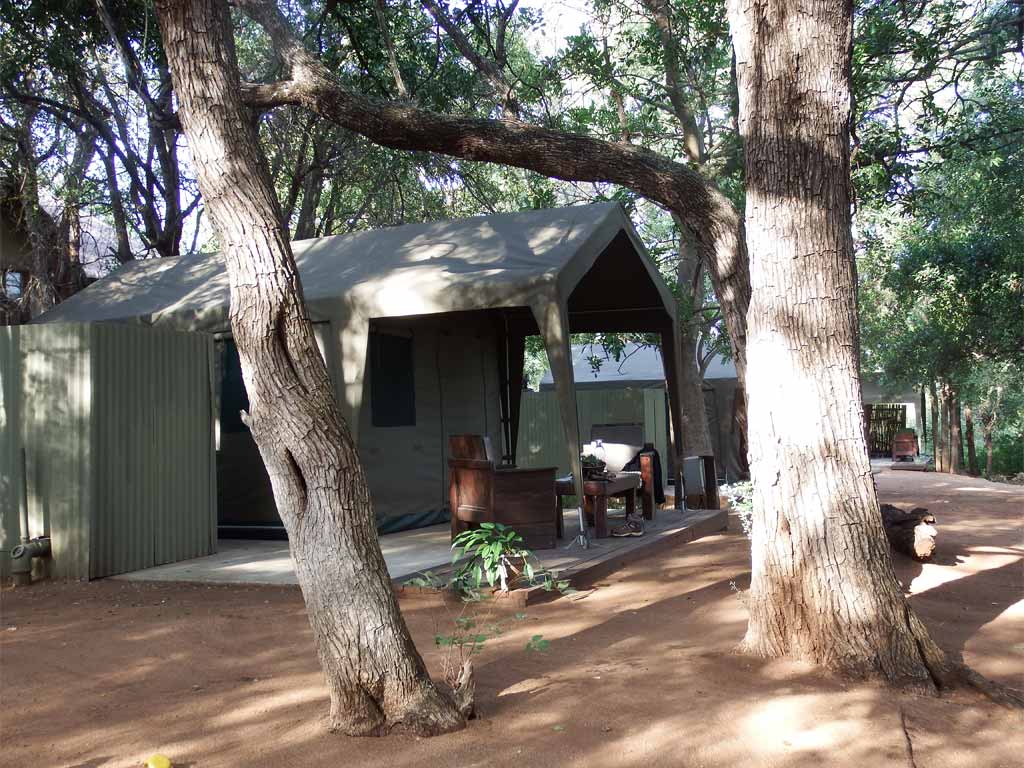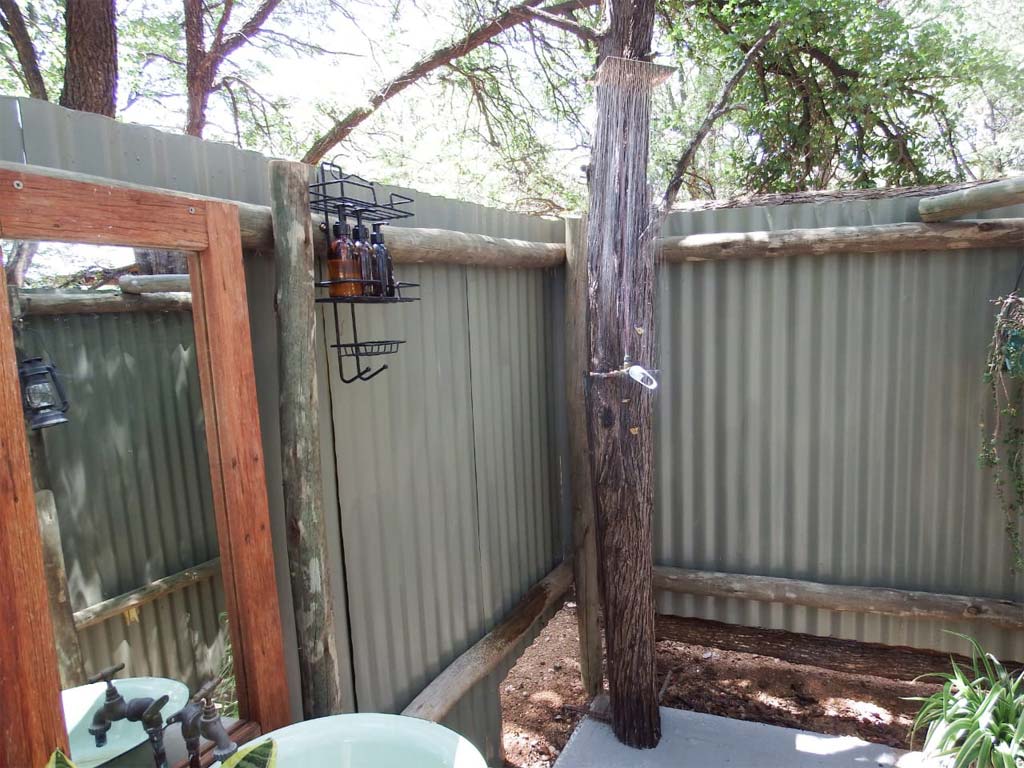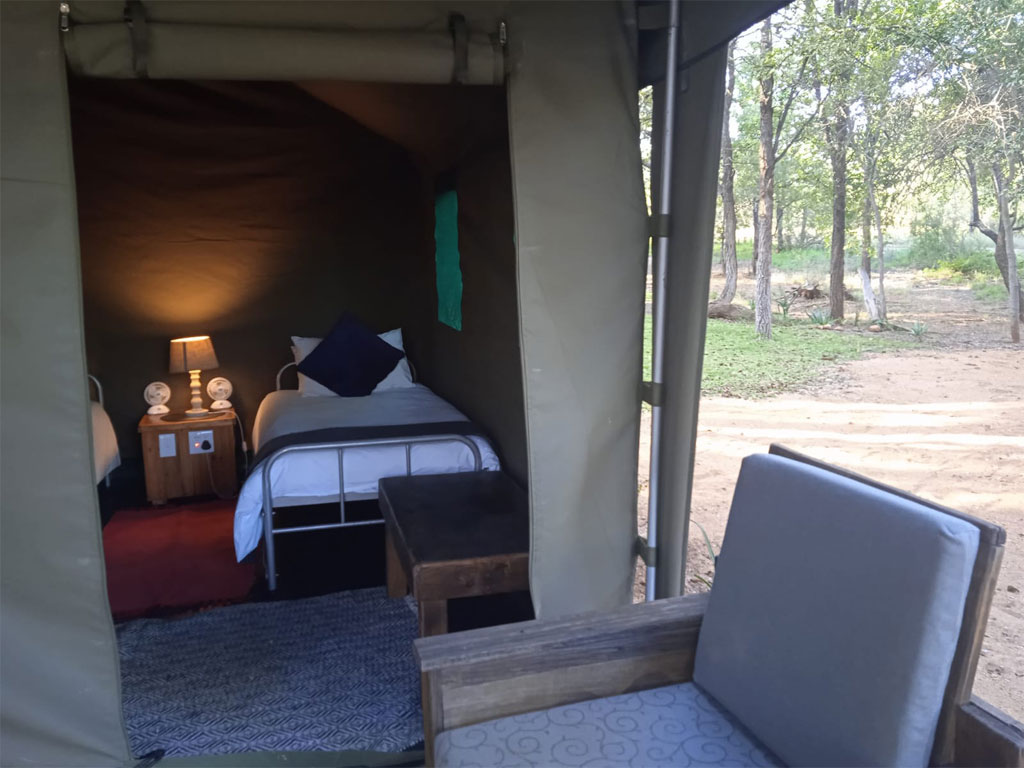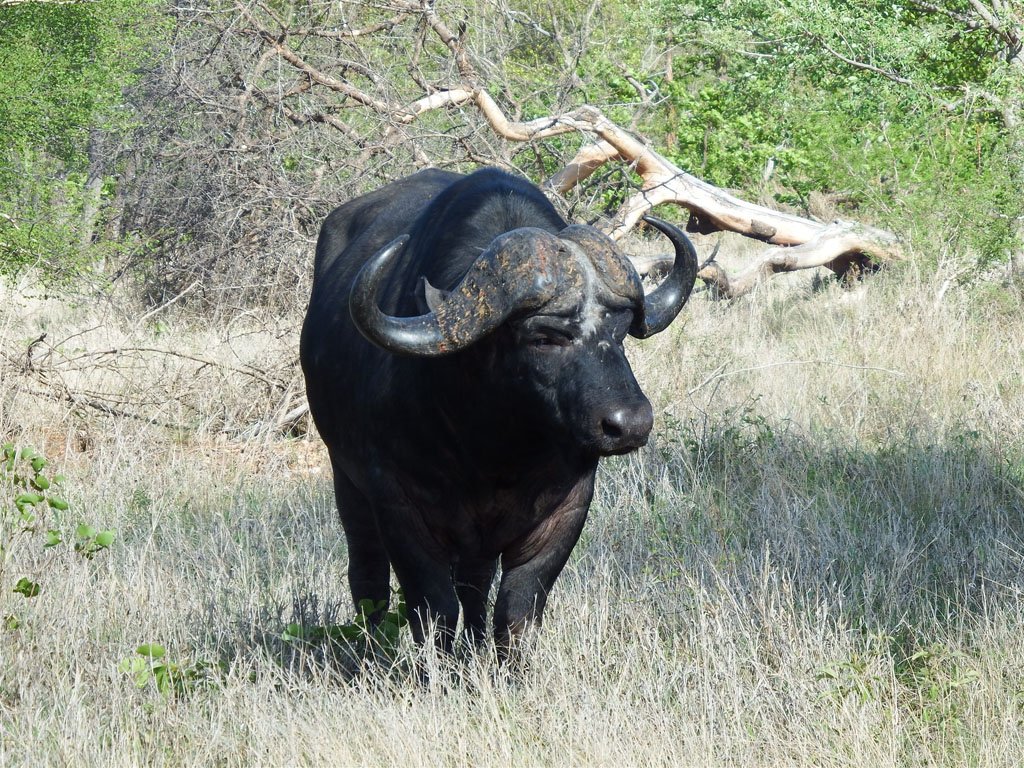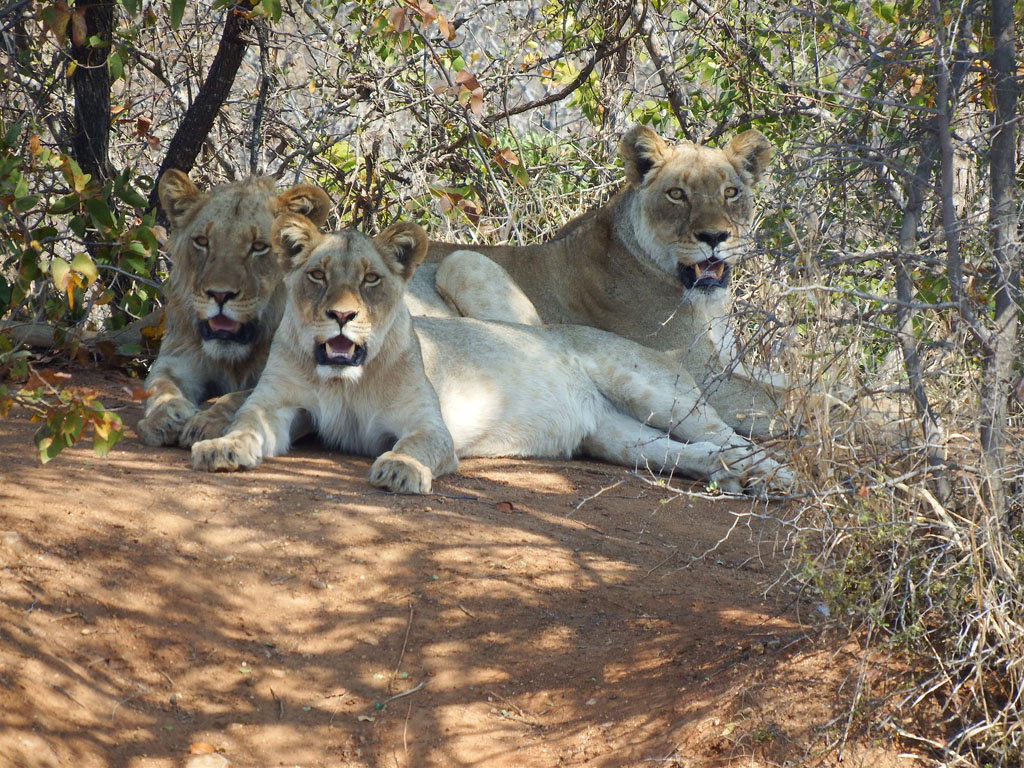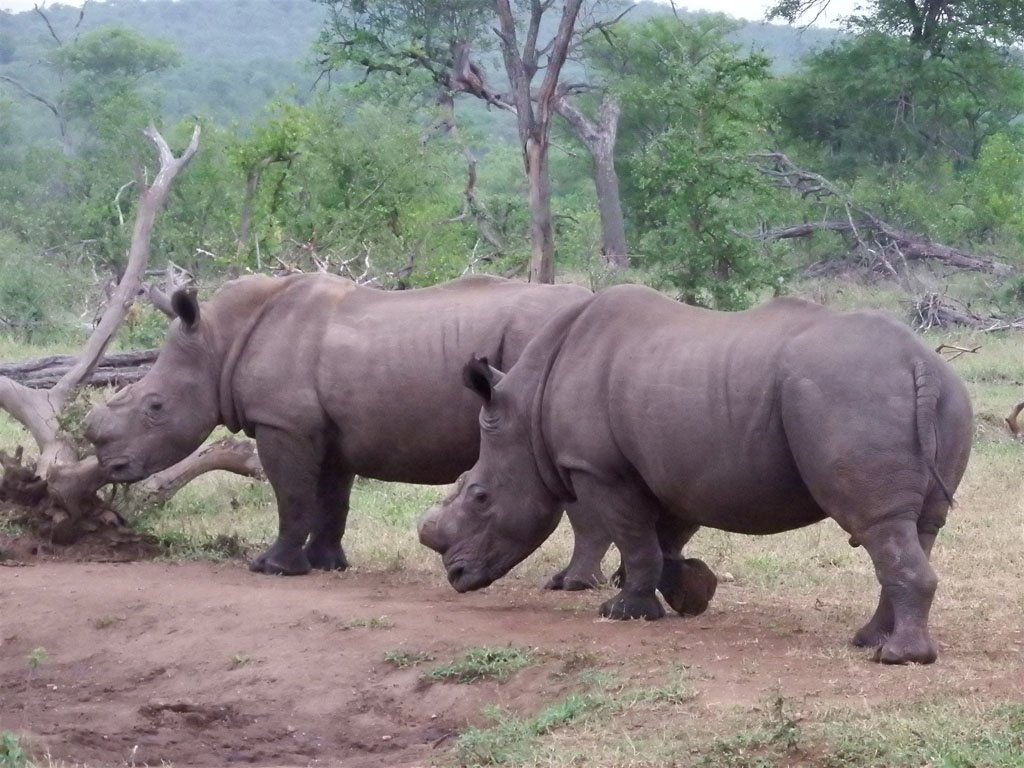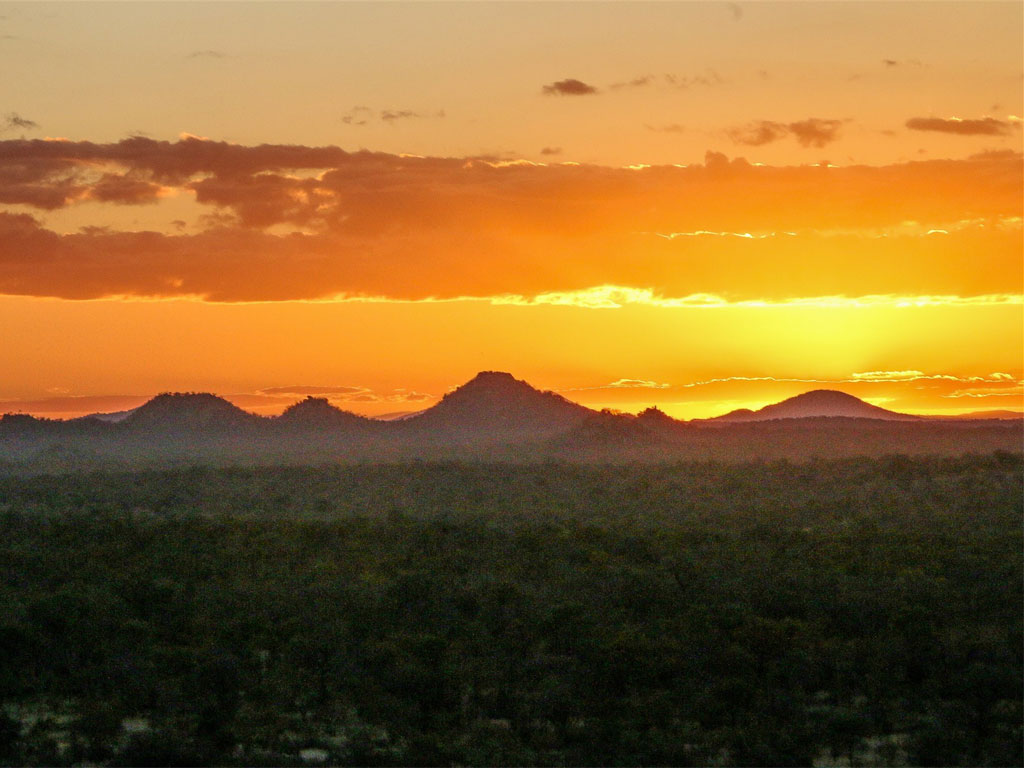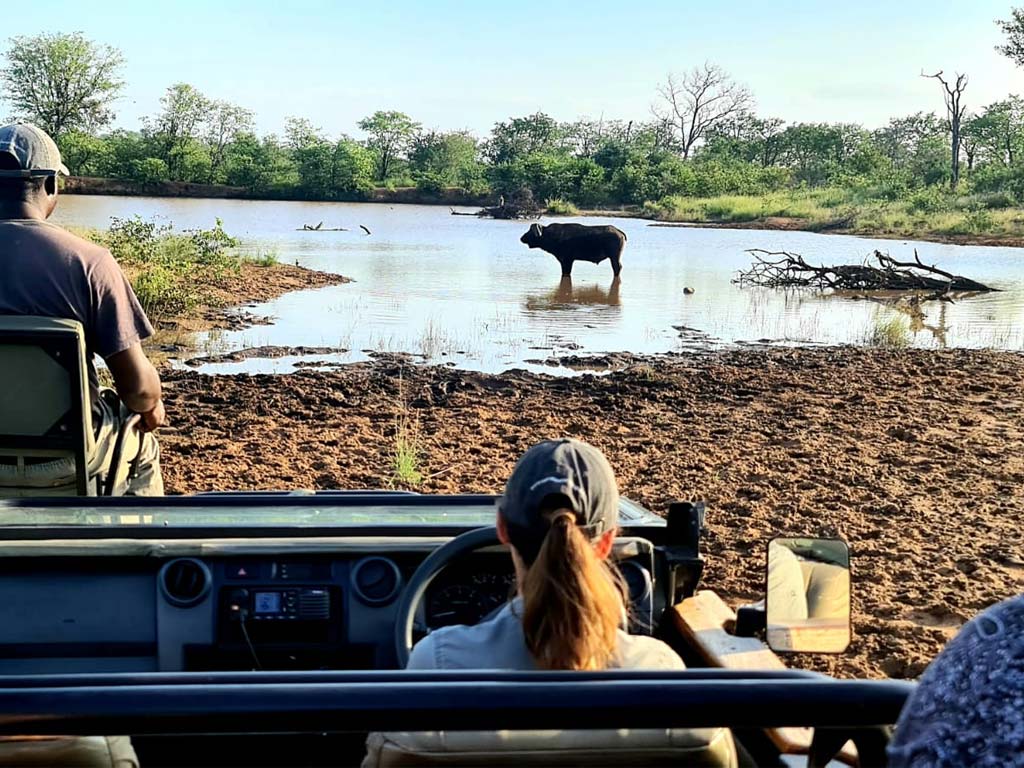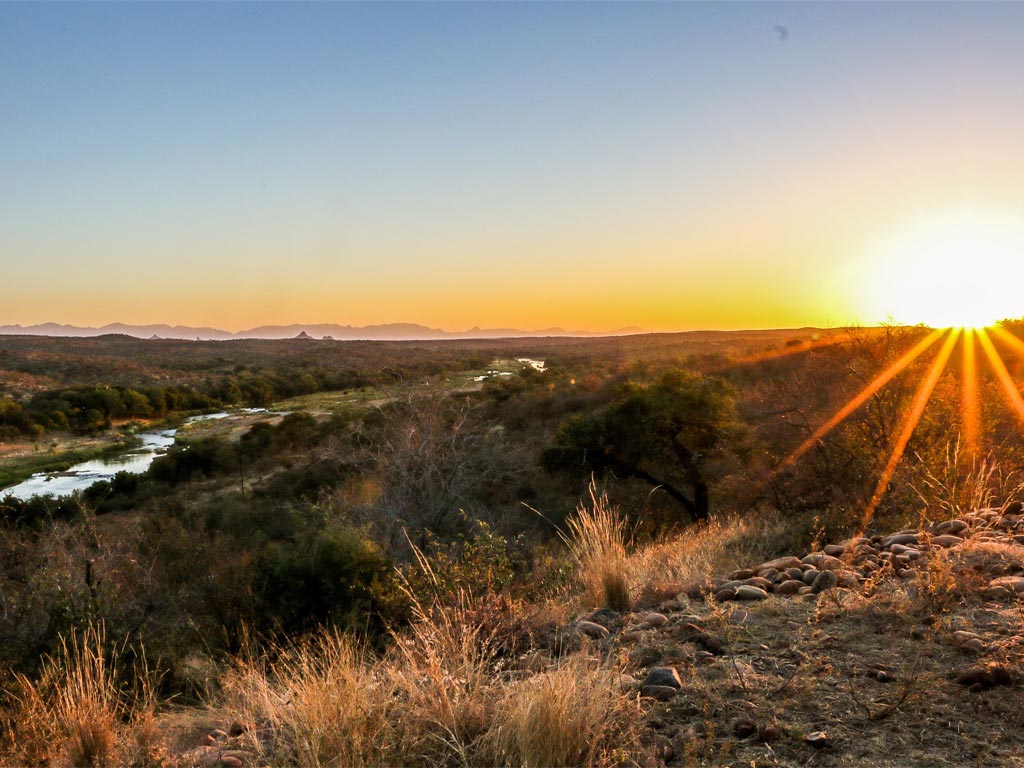What to look forward to…
Wildlife-Encounters like never before.
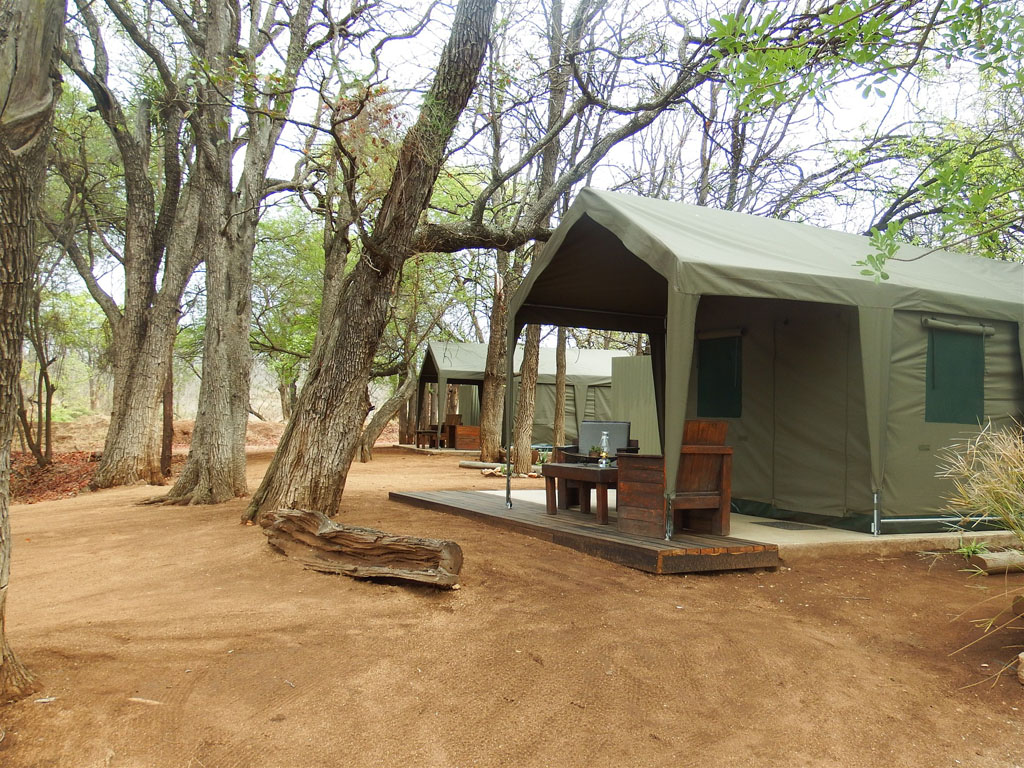
The nDzuti tented bush camp has 4 tents set out with a view over the waterhole. There is no fence around the camp which dictates our child policy of no children under 10 years old. There is a lawned and shaded garden with some tall mopane and other iconic trees like baobab and fever trees. We have an out dour lounge area under an umbrella as well as a lounge in the main lodge on the upper level. There is a boma with a fire pit and camp chairs where we eat evening meals. There is also an indoor dining room and bar. The garden has some hammocks and a day bed and a small splash pool. The tents have a small furnished wooden deck out the front. There is electricity in the tents and the main building as well as peripheral soft lighting shining outwards from the camps extent.
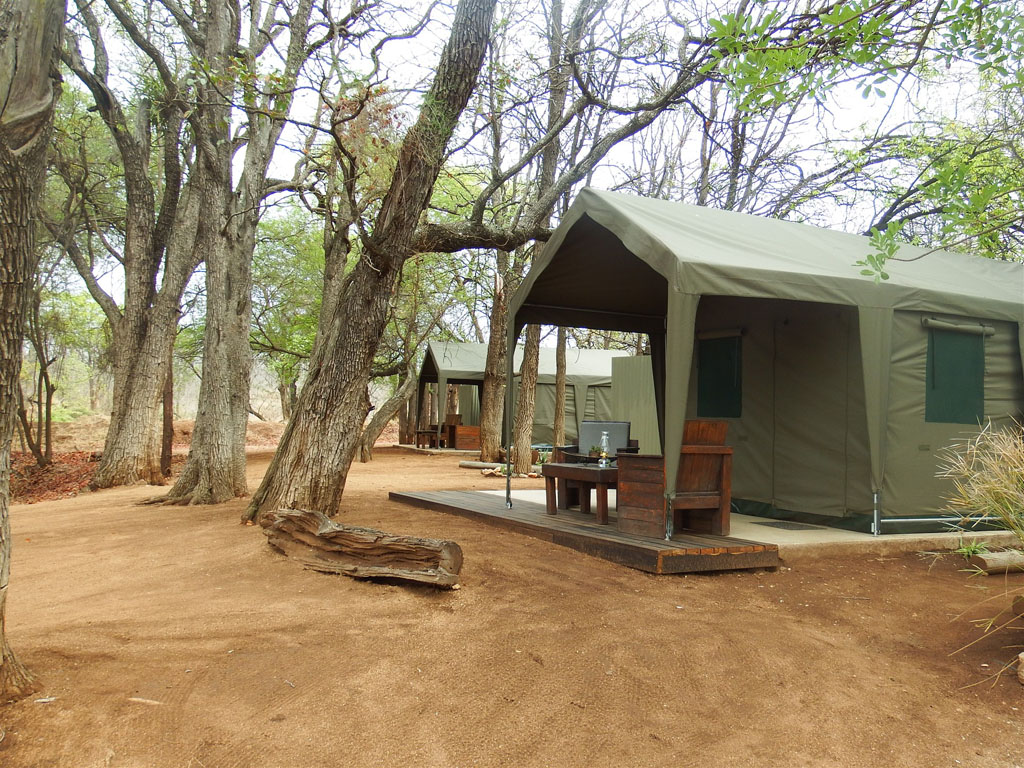
Tented Bush Camp - R4,050.00 PPS - (ALL INCLUDED)
The nDzuti tented bush camp has 4 tents set out with a view over the waterhole. There is no fence around the camp which dictates our child policy of no children under 10 years old. There is a lawned and shaded garden with some tall mopane and other iconic trees like baobab and fever trees. We have an out dour lounge area under an umbrella as well as a lounge in the main lodge on the upper level. There is a boma with a fire pit and camp chairs where we eat evening meals. There is also an indoor dining room and bar. The garden has some hammocks and a day bed and a small splash pool. The tents have a small furnished wooden deck out the front. There is electricity in the tents and the main building as well as peripheral soft lighting shining outwards from the camps extent.
“Animals are free to come and go following ancient routes between breeding and feeding grounds”
Click to Watch!
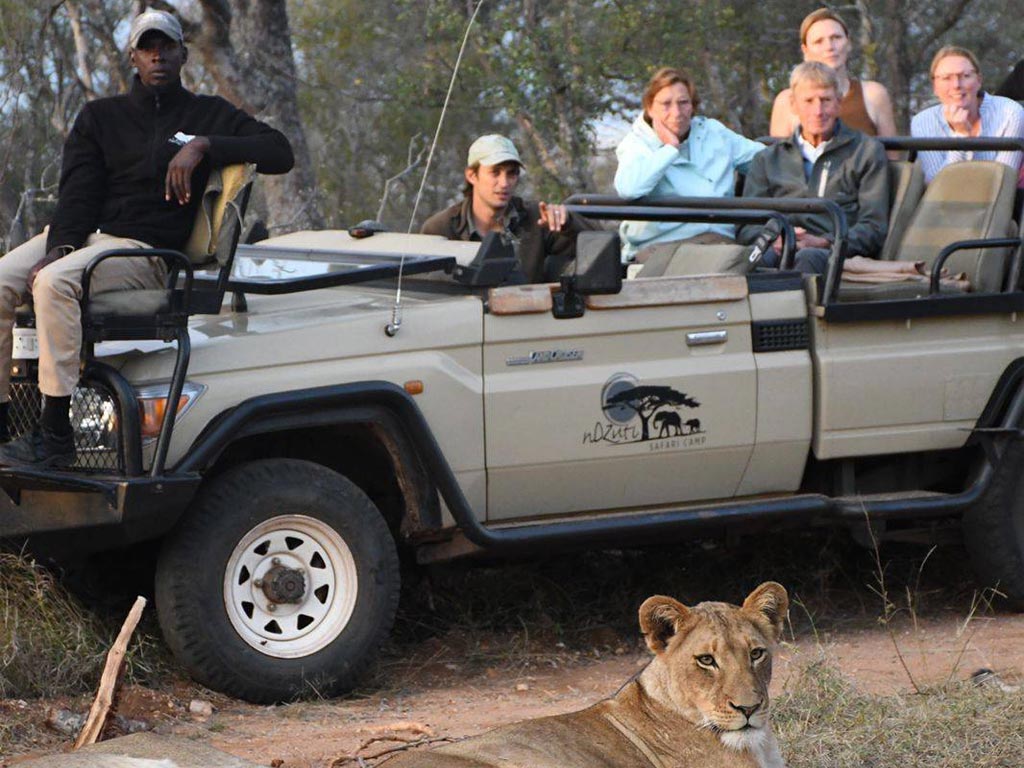
Game drives are scheduled to take place when animals are most active, at dusk and at dawn. We have a large area to traverse, some 12000 ha ( nearly 30 000 acres) and the area is exciting and diverse with many different landscapes and features. All of the BIG FIVE animals are found in our area and we have a good chance of seeing them all. We do try to impart an appreciation for all the other animals and birds as we as the vegetation and its value. We have some circumstances when we will off road, but we try to avoid doing so as off-road driving can be damaging for the environment. Generally, the animals chose to use the roads and there is no need to off-road. The morning drives leave camp after a quick cup of coffee or tea with a traditional rusk to dunk, and so later we do stop for a coffee break with some cookies and fruit. In the afternoons we have a sundowner stop which is a quirky safari tradition, often involving a gin and tonic or glass of wine and snacks to toast the setting sun.
If requested before travel, we are able to offer walks with an armed and qualified guide instead of a morning game drive.
We generally drive from camp to the area the ranger has chosen and then set off on the walk. While on a walking the pace is easy, set to enjoy the surroundings, stopping often to discuss vegetation, tracks and maybe even follow some fresh spoor, learning about the animals’ habits as we go. There may be some big game encounters but the emphasis of the walk is on birding, spoor and the smaller but fascinating aspects of the African bush. Along the way, we’ll find some shade where you’ll have a break and the refreshments in your day pack. African wildlife is wary of people on foot and often rush off at the first scent or sight of the group. For this reason, we combine walks with drives to give you the best of both. Viewing animals on foot, should the wind direction and other factors be suitable is an unforgettable experience, exciting yet humbling. Back in camp, wash off the dust of the open trail before sitting down to a cooked breakfast.
Later, enjoy an afternoon game drive.

Game Drives & Walks - INCLUDED
The nDzuti tented bush camp has 4 tents set out with a view over the waterhole. There is no fence around the camp which dictates our child policy of no children under 10 years old. There is a lawned and shaded garden with some tall mopane and other iconic trees like baobab and fever trees. We have an out dour lounge area under an umbrella as well as a lounge in the main lodge on the upper level. There is a boma with a fire pit and camp chairs where we eat evening meals. There is also an indoor dining room and bar. The garden has some hammocks and a day bed and a small splash pool. The tents have a small furnished wooden deck out the front. There is electricity in the tents and the main building as well as peripheral soft lighting shining outwards from the camps extent.
If requested before travel, we are able to offer walks with an armed and qualified guide instead of a morning game drive.
We generally drive from camp to the area the ranger has chosen and then set off on the walk. While on a walking the pace is easy, set to enjoy the surroundings, stopping often to discuss vegetation, tracks and maybe even follow some fresh spoor, learning about the animals’ habits as we go. There may be some big game encounters but the emphasis of the walk is on birding, spoor and the smaller but fascinating aspects of the African bush. Along the way, we’ll find some shade where you’ll have a break and the refreshments in your day pack. African wildlife is wary of people on foot and often rush off at the first scent or sight of the group. For this reason, we combine walks with drives to give you the best of both. Viewing animals on foot, should the wind direction and other factors be suitable is an unforgettable experience, exciting yet humbling. Back in camp, wash off the dust of the open trail before sitting down to a cooked breakfast.
Later, enjoy an afternoon game drive.
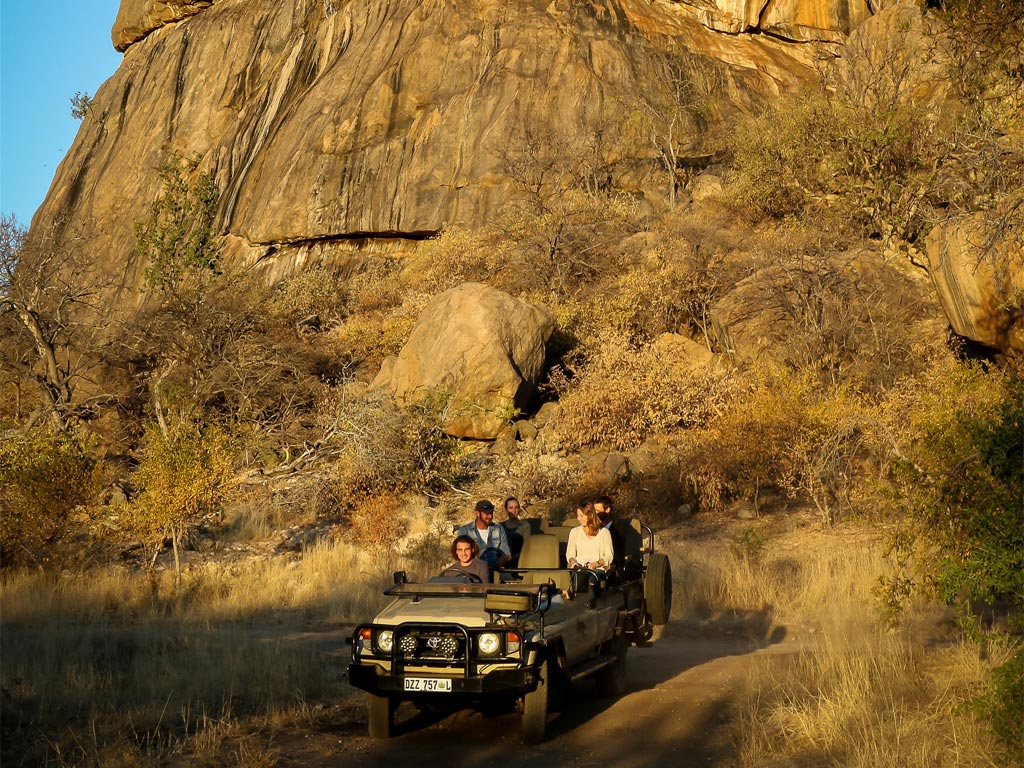
The nDzuti bushcamp is in Balule Game Reserve and on the Maseke section of this 55 000-ha Reserve. Balule Nature Reserve is part of the Greater Kruger Park and the Associated Private Nature Reserves. This has been achieved when like-minded land-owners of private tracts up against the western Kruger, got together and approaching the National Park for the security and protected status that comes with this association.
The Maseke section of Balule belongs to a small community of Sotho people who live close to the reserve. The Balule, which incorporates the Maseke section, joined the Greater Kruger in the early 1990s.
The bush surrounding the nDzuti bush camp is delightfully diverse, ranging from thick mopane woodland to rocky outcrops and Olifants River frontage. The immediate vicinity, namely the Maseke section of Balule is well known for its regular lion sighting and many elephants that frequent the area. Other animals such as giraffe and zebra so well-loved while game viewing are found in Balule as well as the many other species found in this eco system.
The most common antelope in the Kruger nowadays is the athletic and sleek impala. Chatting to the elderly scouts who worked in the early days of the park, they speak of Tsessebe antelope in their numbers and far less impala. Likewise, when the park was formed in the early 1900s there were very few elephants still roaming the area but now the elephant population has increased significantly and the large numbers of this keystone species are having an irrevocable impact on the vegetation of the Greater Kruger. The presence of artificially provided permanent water with windmills and wells has benefitted certain water-dependant species to the detriment of other animals who do not rely on water and so the species composition has been inadvertently changed by man’s intervention.
The greater Kruger and its surrounds remain an iconic and varied wilderness area stretching from the Crocodile River in the south to the Limpopo in the north with a mountain range on both the east and the western far reaches of the ecosystem.
At nDzuti bushcamp we are privileged to have access to a large section of the Balule where we hope to provide visitors with unforgettable wildlife encounters.

Areas We Explore - INCLUDED
If requested before travel, we are able to offer walks with an armed and qualified guide instead of a morning game drive.
We generally drive from camp to the area the ranger has chosen and then set off on the walk. While on a walking the pace is easy, set to enjoy the surroundings, stopping often to discuss vegetation, tracks and maybe even follow some fresh spoor, learning about the animals’ habits as we go. There may be some big game encounters but the emphasis of the walk is on birding, spoor and the smaller but fascinating aspects of the African bush. Along the way, we’ll find some shade where you’ll have a break and the refreshments in your day pack. African wildlife is wary of people on foot and often rush off at the first scent or sight of the group. For this reason, we combine walks with drives to give you the best of both. Viewing animals on foot, should the wind direction and other factors be suitable is an unforgettable experience, exciting yet humbling. Back in camp, wash off the dust of the open trail before sitting down to a cooked breakfast.
Later, enjoy an afternoon game drive.
The bush surrounding the nDzuti bush camp is delightfully diverse, ranging from thick mopane woodland to rocky outcrops and Olifants River frontage. The immediate vicinity, namely the Maseke section of Balule is well known for its regular lion sighting and many elephants that frequent the area. Other animals such as giraffe and zebra so well-loved while game viewing are found in Balule as well as the many other species found in this eco system.
The most common antelope in the Kruger nowadays is the athletic and sleek impala. Chatting to the elderly scouts who worked in the early days of the park, they speak of Tsessebe antelope in their numbers and far less impala. Likewise, when the park was formed in the early 1900s there were very few elephants still roaming the area but now the elephant population has increased significantly and the large numbers of this keystone species are having an irrevocable impact on the vegetation of the Greater Kruger. The presence of artificially provided permanent water with windmills and wells has benefitted certain water-dependant species to the detriment of other animals who do not rely on water and so the species composition has been inadvertently changed by man’s intervention.
The greater Kruger and its surrounds remain an iconic and varied wilderness area stretching from the Crocodile River in the south to the Limpopo in the north with a mountain range on both the east and the western far reaches of the ecosystem.
At nDzuti bushcamp we are privileged to have access to a large section of the Balule where we hope to provide visitors with unforgettable wildlife encounters.
